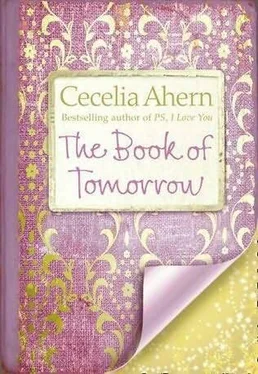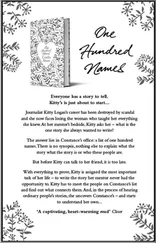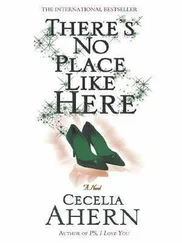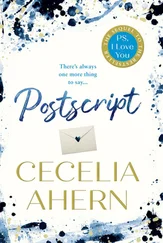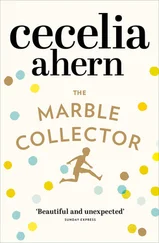I watched her then, her blonde hair around her on the pillow, her long eyelashes closed over her perfect blemish-free skin. Her lips were ever so slightly parted and were breathing soft, sweet, warm breaths.
Perhaps as I’ve been telling this story, I’ve been giving the wrong impression of my mother. The grieving widow mindlessly looking out of a window while sitting in a rocking chair in a bell-sleeved nightgown makes her sound so old. She’s really not old at all. She’s beautiful.
She’s only thirty-five, much younger than all my friends’ mums. Mum had me when she was eighteen. Dad was older than her, at twenty-eight. Dad loved telling me the story about how they met, though it always differed slightly each time. I think he enjoyed it, leaving the truth as something Mum and Dad only ever knew. That was a nice thing about Dad, and I never minded if they never told me the whole truth. Perhaps hearing it wouldn’t have lived up to all the other stories I’d heard and visualised. The common denominator in all of his stories is that they met at a posh banquet dinner somewhere and when their eyes met he knew he just had to have her. I started laughing and told him it was exactly what he’d said about the filly he’d seen when he came back from the Goffs sale.
He shut up then, lost the smile and the distant look, and momentarily wished he hadn’t got a teenage daughter, while Mum seemed to ponder my words in a long silence. I wanted to tell them that I didn’t really mean it, that it was just the way I was, awkward, and bitchy remarks dropped from my mouth without intention or preplanning. But I couldn’t say that to my parents. I was too proud. I wasn’t used to saying sorry. But refusing to take it back wasn’t just because I was too proud, it was also because a part of me thought that it could be true. It is exactly what Dad had said when he came home from Goffs. It was also exactly what he said when he saw a new watch, or a new boat, or a new suit: ‘You should see it, Jennifer. I have to have it.’ And when Dad had to have something, he had it. I wondered if Mum was as powerless as the filly in Goffs, as the yacht in Monaco and everything else in the world that Dad had to have. And if so, I don’t pity her at all for her weak-mindedness.
I don’t doubt that Dad loved Mum. He adored her. He was always looking at her, touching her, he opened doors for her, bought her flowers, shoes, handbags, constant surprises to show her he was thinking of her. He was always complimenting her on the most ridiculous things which annoyed me a lot. He never complimented me on any of those things. And don’t go all Sigmund Freud on me, I wasn’t jealous-he was my dad, not my husband, and I know the same rules do not apply, nor would I want them to. But. You can’t lose a daughter, can you? A child of yours will always be your child, whether you see them or not. A wife, now that can more easily be lost. She can grow bored and wander off. She was so beautiful she could have had most men she met, and Dad knew this. His comments to Mum, meant in the most endearing way, seemed patronising to me.
‘Sweetheart, tell them, tell them what you said yesterday when the waiter asked if you’d like dessert. Go on, tell them, sweetheart.’
‘Oh, it’s not a big deal, George, really.’
‘Oh, tell them, Jennifer, sweetheart. It was so funny, really it was.’
And then Mum would tell them, ‘I simply said that I’d put on the calories just looking at the dessert menu,’ and people would smile and laugh lightly, while Dad’s face beamed with pride at the hilarity of his wife, and Mum would smile that mysterious smile that revealed nothing and I would want to stand up and shout, ‘But that’s fucking ridiculous! That joke is three thousand years old! And it’s not even funny!’
I don’t know if Mum ever saw it the way I did. She always just smiled and that smile hid a million responses. Maybe that’s what made Dad nervous: how much she kept inside. Maybe he never knew how she felt. They weren’t like other couples that sometimes rolled their eyes at each other, or picked each other up on comments they’d made to discuss or debate them a little further. They were just both sickeningly agreeable with each other. Mum pan-faced, Dad always complimentary. Or maybe I simply don’t understand what was going on between them because I’ve never been in love. Maybe love is thinking that every time your partner does or says something mundane that you want to start a Mexican wave from here to Uzbekistan in utter delight. I’ve never had that with anyone.
I always felt Dad and I were total opposites. When he’s afraid, or was afraid, of someone leaving, he complimented them on everything. For example, if Mum’s friends visited, they usually annoyed him and he’d ignore them the entire time they were there, but then when they were leaving he’d make sure he gave them the warmest hugs, smile and send off possible. Dad was a ‘stand at the front door and wave until you can’t see the car any more’ kind of person. I’d just imagine Mum’s friends when they got home: ‘George is such a gentleman, when I left he gave me the biggest hug and helped me into my car. I wish you’d behave like that to my friends, Walter.’
Dad was more into last impressions than first ones, which makes his death all the more symbolic. I was the opposite. Just as I’d given Barbara an easy way to leave me by making bitchy remarks to her, I’d done the same to my mum and dad all my life. I make it easier for people to leave by making them momentarily hate me. I didn’t realise that other people kept and stored my spoiled behaviour, my sarcastic throw away comments. I’d been doing that since I was a child.
I used to beg Mum and Dad not to go out so much but they’d go out anyway. The only times they stayed in was to recharge their batteries, usually so exhausted and tired of being together they’d separate and spend the evening in different rooms. We never got to spend time with all of us together. I’ve learned now that what I desired more than some things-but not more than anything-was for us to spend time together, natural and easy time around the house, not pushed together in forced moments when they’d call me into the room to proudly present me with a gift or a surprise announcement.
‘Now, Tamara, you know how fortunate you are,’ would begin Mum, who has the biggest problem with guilt about having all the things we had. ‘There are lots of boys and girls that don’t get this opportunity…’
And in my head I wouldn’t feel the excitement they’d think I’d be feeling, though I’d be trying to show it on my face. All I’d hear was my own voice saying, yada yada yada, get to the point, what are you giving me now?
‘But as you’ve been so good and appreciative of all the lovely things you have, and because you are such a special daughter to us…’
Yada yada yada. It’s not a gift, I can’t see it anywhere in the room. Mum’s got no pockets, Dad’s hands are in his, so it’s not concealed on their bodies. We’re going somewhere. Today’s Wednesday. Dad goes to the driving range on Thursdays and Mum has her monthly colonic and without that she’d surely blow up, so we’re not going anywhere till Friday. It’s a weekend thing. So where’s close enough to go for a weekend?
‘We talked about it for a while and we feel…’
Yada yada yada. Perhaps, London for a weekend. But they always go to London and I’ve been there before, and they seem excited. So it’s somewhere we don’t often go. Paris. That’s close enough. Stuff for them to do; Mum can shop, Dad can follow her around, secretly buying the things for her that she loves but won’t get because they’re too expensive, and I can do what? What can I do in Paris? Oh, I get it now. Ah. Eurodisney. Cool.
Читать дальше
Конец ознакомительного отрывка
Купить книгу
